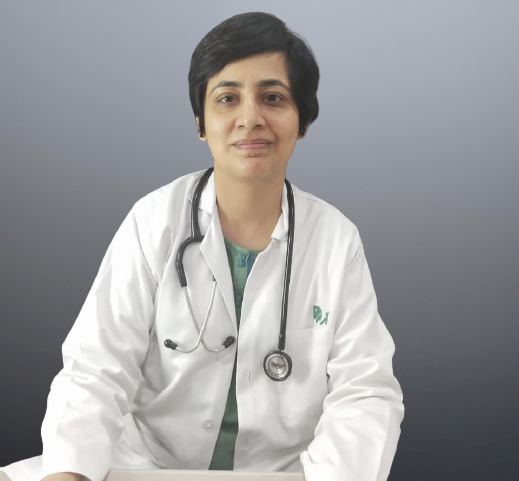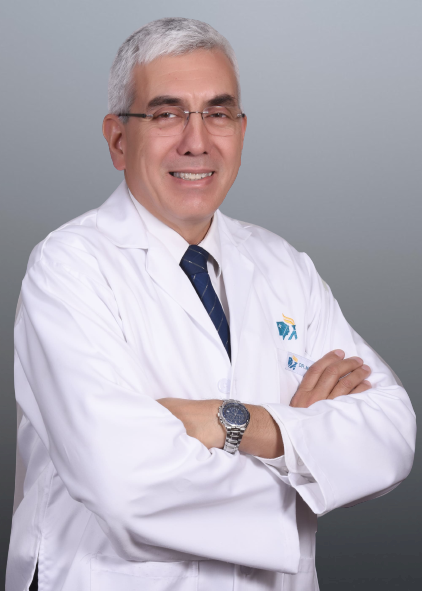Search Result: 6

Dr Charu Gauba
MBBS, MD, MRCP (UK), DNB Neurology
Registration No
678199
Language
English, हिंदी

16 years experience overall

Sarita Vihar , Delhi
MON- SAT(12:00 PM-04:00 PM)

Dr Mukul Varma
MBBS, MD, DM
Registration No
425
Language
English

25 years experience overall

Sarita Vihar , Delhi
MON- SAT(01:00 PM-05:00 PM)

Dr Pushpendra Nath Renjen
MBBS, DM (Neuro) FRCP (Glas.), FRFCP (Edin), FRCP (Ireland).
Registration No
17721
Language
English, हिंदी

36 years experience overall

Sarita Vihar , Delhi
MON- SAT(02:45 PM-03:00 PM, 03:30 PM-04:00 PM)

Dr Rakesh Agarwal
MBBS, MD, DABPN
Registration No
428
Language
English, हिंदी

28 years experience overall

Sarita Vihar , Delhi
MON- WED, FRI, SAT(01:00 PM-03:00 PM)

Dr Vinit Suri
MBBS, MD, DM
Registration No
678206
Language
English, हिंदी

25 years experience overall

Sarita Vihar , Delhi
MON- WED, FRI, SAT(02:00 PM-02:30 PM)

Dr Dhruv Vikram Zutshi
MBBS,MD ,DM
Registration No
6147876
Language
English, हिंदी

3 years experience overall

East of Kailash , Delhi
MON- SAT(06:30 PM-07:30 PM)
Frequently Asked Questions for s in
The risk of developing Alzheimer’s disease increases with age. Most cases occur in individuals over 65 years, with the risk doubling every five years after 65 years.
Dementia is an umbrella term that refers to a group of symptoms affecting cognitive function, memory, and behaviour. Alzheimer’s disease is the most common form of dementia, accounting for 60-80% of all cases. Other types of dementia include vascular dementia, Lewy body dementia, and frontotemporal dementia.
The most significant risk factor for developing Alzheimer’s disease is advancing age. Other risk factors include having a family history of the disease, certain genetic mutations, cardiovascular disease, diabetes, and a history of head injuries.
While there is no cure for Alzheimer’s disease, starting treatment early can potentially slow down the progression of the disease and improve quality of life. Early diagnosis allows for better management of symptoms and access to support services.
As of now, there is no known cure for Alzheimer’s disease. However, research is ongoing, and new treatments are being developed. Early diagnosis and treatment can help manage symptoms and potentially slow down the progression of the disease.
Changes in sleep patterns are common in individuals with Alzheimer’s disease. They may experience difficulty sleeping at night and increased daytime sleepiness. If necessary, these changes can be managed through proper sleep hygiene and medication adjustments.
There are several memory tests used to assess cognitive function and diagnose Alzheimer’s disease. Commonly used tests that evaluate memory, attention, language, and other cognitive abilities include the Mini-Mental State Examination (MMSE) and the Montreal Cognitive Assessment (MoCA).
There is no cure for Alzheimer’s disease at the moment. However, treatment options are available to manage symptoms and improve quality of life. It is crucial to start treatment early to slow down disease progression potentially.
While genetics can play a role in the development of Alzheimer’s disease, it is not solely determined by genes. A family history of the disease increases the risk, but many cases occur in individuals without a known family history.
Alzheimer’s disease is believed to be a combination of genetic, environmental, and lifestyle factors; however, the exact cause is unknown. Most cases occur in individuals over the age of 65 years, indicating that age is the most significant factor. There are also cases of early-onset Alzheimer’s disease that occur in individuals under the age of 65 years. Certain genetic mutations have also been associated with an increased risk of developing the disease.
Yes, some medications used to treat Alzheimer’s disease may have side effects such as nausea, vomiting, diarrhoea, dizziness, and sleep disturbances. It is important to discuss any concerns or side effects with the doctor, who can adjust the dosage or recommend alternative medications if necessary.
Common symptoms of Alzheimer’s disease include memory loss, difficulty with language and communication, confusion, disorientation, changes in mood and behaviour, difficulty with problem-solving and decision-making, and withdrawal from social activities.
A diagnosis of Alzheimer’s disease is typically made through medical history evaluation, cognitive tests, neurological examinations, and brain imaging scans. The doctor may also prescribe certain blood tests to rule out other possible causes of the symptoms.
Alzheimer’s disease has no cure, but certain treatment options can help slow down the disease progression and help manage the symptoms. For example, medications like cholinesterase inhibitors and memantine, which can improve cognitive function and manage behavioural symptoms, can be one such option. Non-pharmacological interventions like cognitive stimulation therapy and occupational therapy can also be beneficial in managing symptoms.
Alzheimer’s disease is usually managed by a team of doctors. Neurologists, geriatricians, and psychiatrists are specialists who commonly treat Alzheimer’s patients. Other members of the team may include psychologists, occupational therapists, speech therapists, and social workers who provide comprehensive care and support.
Other Specialities in Delhi
- Best Urologist in Delhi
- Best Pulmonologist in Delhi
- Best General Physician in Delhi
- Best Endocrinologist in Delhi
- Best Cardiologist in Delhi
- Best Oncologist in Delhi
- Best Radiologist in Delhi
- Best Orthopedics in Delhi
- Best Hepatologist in Delhi
- Best Gynecologist in Delhi
- Best Dermatologist in Delhi
- Best Gastroenterologist in Delhi
- Best Psychologist in Delhi
- Best Ent Specialist in Delhi
- Best Nephrologist in Delhi
- Best Rheumatologist in Delhi
- Best Diabetologist in Delhi
- Best Psychiatrist in Delhi
- Best Neonatologist in Delhi
- Best Dentist in Delhi
- Best Dietitian in Delhi
- Best Haematologist in Delhi
- Best Pediatrics in Delhi
- Best General Surgeon in Delhi
Top Hospitals in India
- Hospitals in Ahmedabad
- Hospitals in Bangalore
- Hospitals in Bhubaneswar
- Hospitals in Bilaspur
- Hospitals in Chennai
- Hospitals in Delhi
- Hospitals in Guwahati
- Hospitals in Hyderabad
- Hospitals in Indore
- Hospitals in Kolkata
- Hospitals in Madurai
- Hospitals in Mumbai
- Hospitals in Mysore
- Hospitals in Nashik
- Hospitals in Noida
- Hospitals in Visakhapatnam
- Hospitals in Lucknow
- Hospitals in Bhopal
- Hospitals in Karur
- Hospitals in Kochi
- Hospitals in Nellore
- Hospitals in Trichy
- Hospitals in Kakinada
© Copyright 2024. Apollo Hospitals Group. All Rights Reserved.
 +91 8069991061
Book Appointment
+91 8069991061
Book Appointment






 Call Now
Call Now






